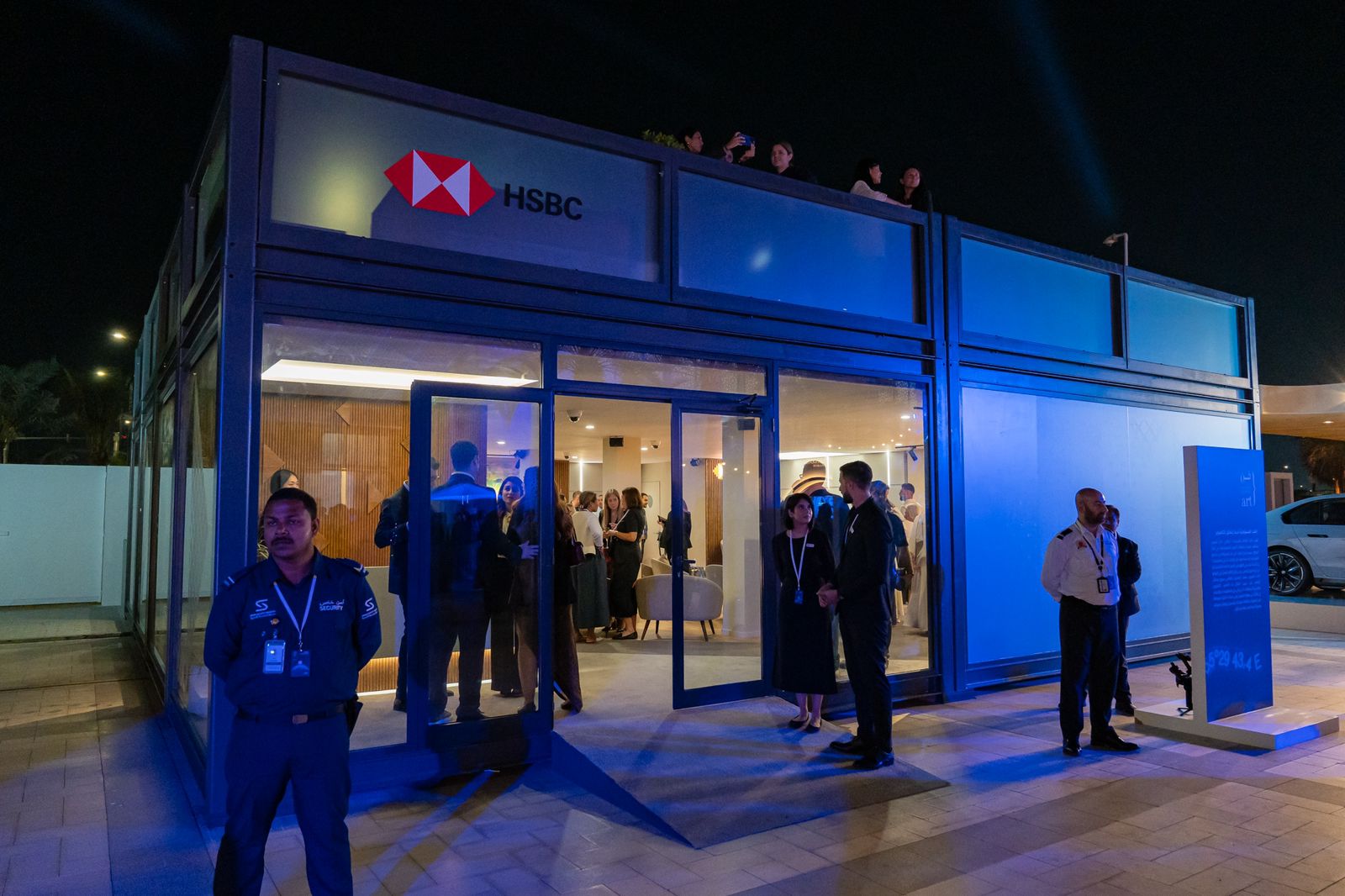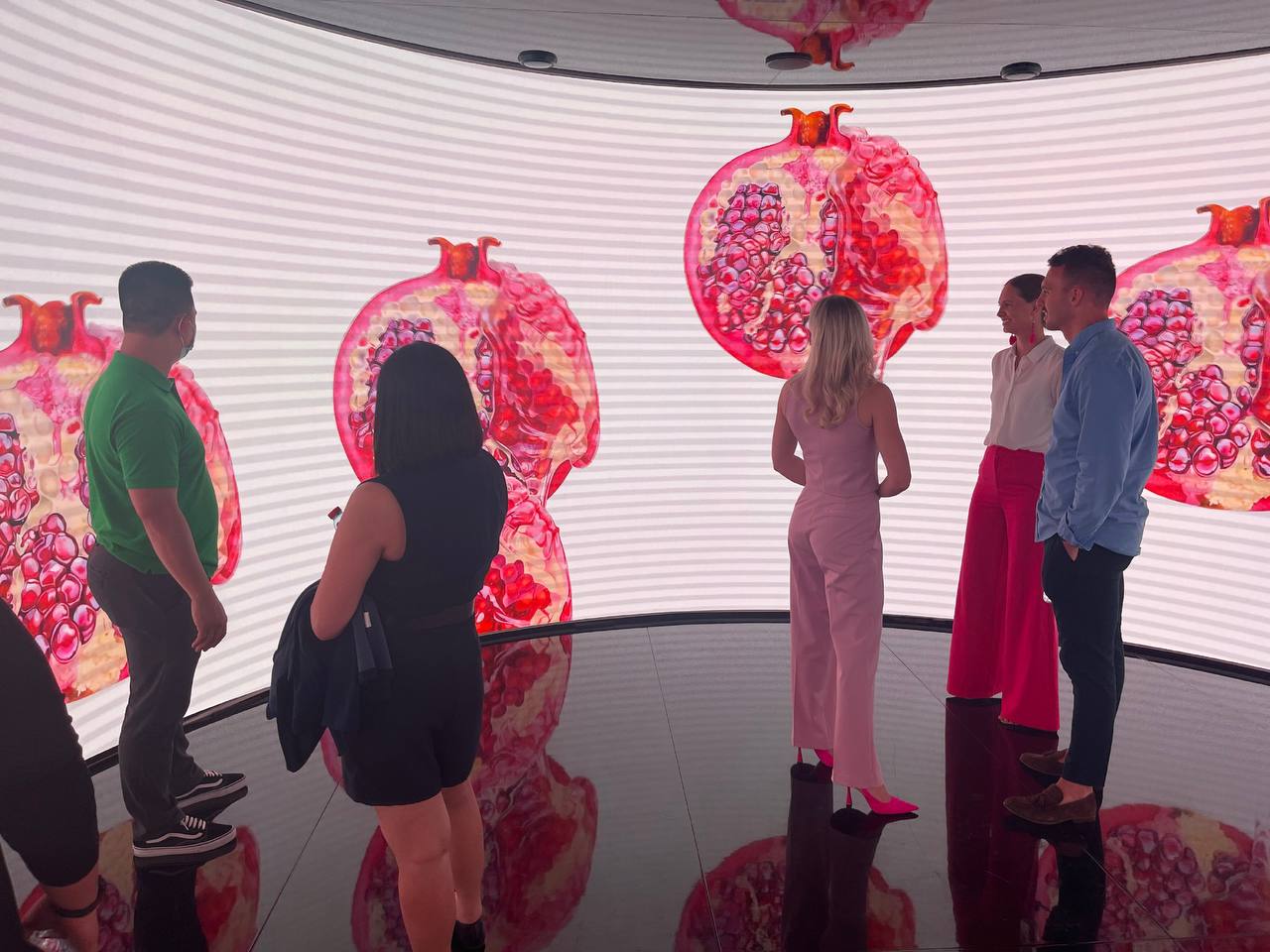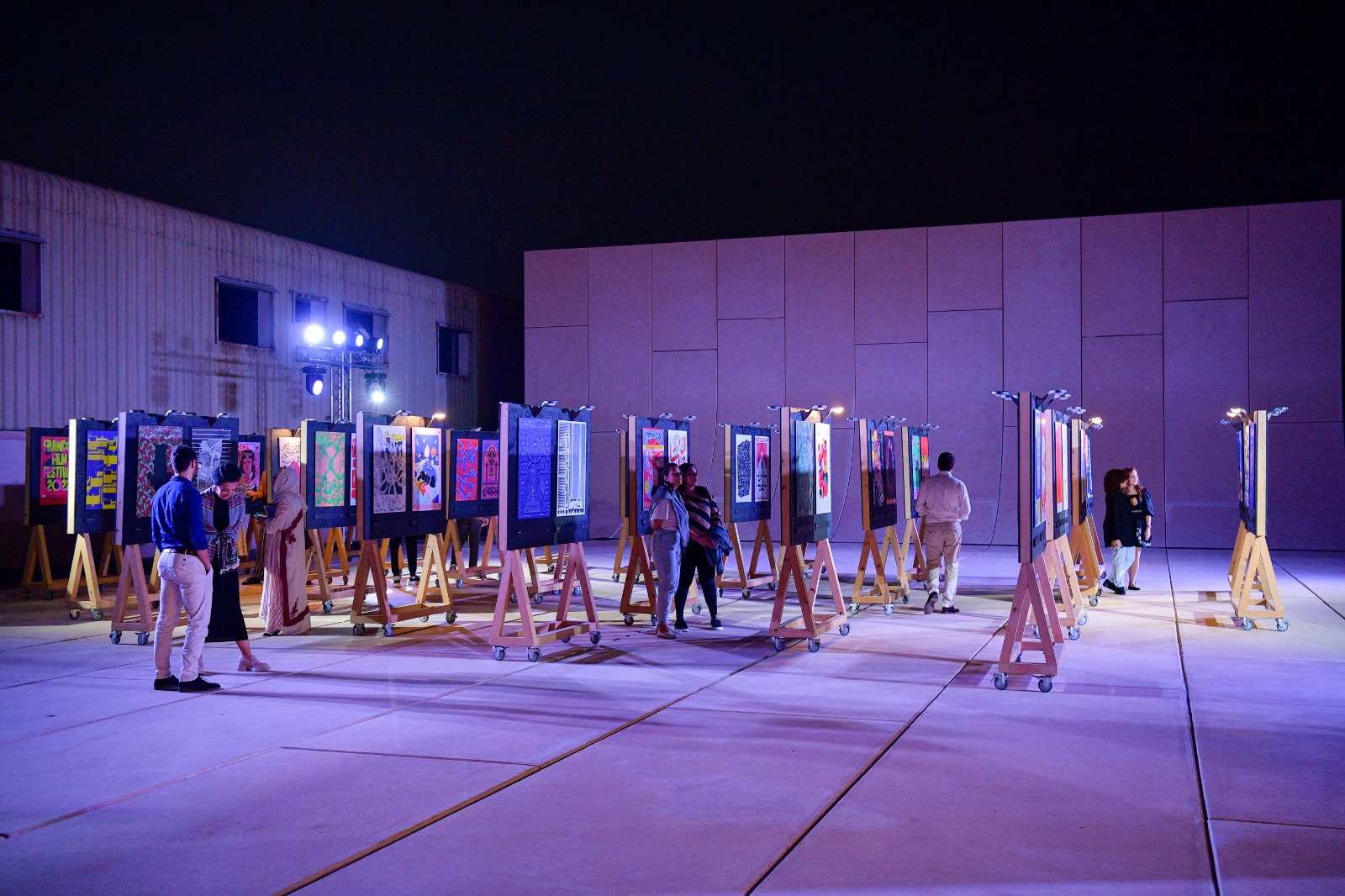Galleria Continua has announced its new exhibition, continuing the gallery’s programme in Dubai’s iconic Burj Al Arab Jumeirah. In The Heat is the second chapter of a series of group shows, paying tribute to the heritage of the Burj Al Arab, and providing contemporary response to the context of its opulent interior designs. The new exhibition, In The Heat, connects with the theme of fire, one of the four elements forming the visual aesthetics of the Burj Al Arab developed by Khuan Chew of KCA International, and follows the show New Wave (7 July – 1 September 2022), which was themed on water.

The context of the exhibition, which opens just as summer temperatures in Dubai reach their peak, makes the theme of fire manifest in a variety of ways. Some artworks presented in the show explore fire as the element of creation, linking to ancient mythologies as well as the physical creation of materials like bronze or ceramic, while others address environmental and geopolitical issues that are heating up in the world of today. Exploring the various connotations of the title, and getting further into a dialogue with the artworks of the exhibition, the viewers can reflect on the element of fire as a source of both creation and destruction.
The show is featuring works by emerging talent alongside those by well-established and recognized names from the international contemporary art scene. Highlighting the long-term commitment of Galleria Continua in the region, the exhibition features two large-scale works by two renowned artists from the Arab world, Ahmed Mater (Saudi Arabia) and Moataz Nasr (Egypt). In Ahmed Mater’s Lightning Land (2017), the erratic and unpredictable energy alludes to the radical transformation that has reconfigured the society of Saudi Arabia. With the lightning striking and hitting the ground, we are able see the new developments taking over the horizon: production factories and oil facilities driving the economy forward – as the empty land is being reimagined as massive new urban centres.

Lightning Land
2017
photography, light jet print
169 x 222, 5 cm
Ed. 3 + 1 AP
Moataz Nasr also explores the developments in current Arab societies, while referencing the historical traditions associated with artisanal heritage, and connecting it with contemporary narratives. Very attractive at first, and shaped in an ideal geometric form, his work Arabesque(2021) is inspired by sacred Islamic motifs. Comprised of thousands of coloured matchsticks, it alludes to the sense of unity created through the coexistence of multiple individualities on one hand, while the other showcases its fragility and potential destruction.

Nocero Umbro
1991-2020
bronze
46 x 71,5 x 35 cm
Ed. 9 + 3 AP
Courtesy: Trust Gemma De Angelis Testa, Milan and GALLERIA CONTINUA
Photo by: Nino Chironna
Extreme heat is the element in creation of bronze – the material used in the sculptures Nocero Umbro and Creatura Africana by late Italian artist Armando Testa, one of the founding fathers of modern Italian advertising. His works introduced new forms and imageries, shaping the art history with the unique approach to pop culture imagery the moves halfway between the linguistic territories of realism and abstraction.

Charcoal Mask
2016
wood, charcoal, wooden mask, mixed media
167 x 217 x 14.5 cm
Courtesy: the artist and GALLERIA CONTINUA
Photo by: Duccio Benvenuti – Art Store
Copyright Line: © ADAGP, Paris
The work Charcoal Mask (2016) by Cameroon-born artist Pascale Marthine Tayou is created of black charcoal, inspired by traditional patterns that recall West African tapestries. A material commonly used for drawing, charcoal is also a sedimentary common rock in South Africa, where its continuous exploitation has led to bad working conditions and environmental damages. Knowing this, even if these charcoals are formally attractive, the work starts to shift from an abstract landscape to a political statement.

ink-jet print, acid
220 x 110 with frame
Courtesy: the artist and GALLERIA CONTINUA
Photo by: Christian Vorhofer
Ukrainian artist Zhanna Kadyrova is exploring the potential forms of destruction through experimentation with materials. In Experiment (2014), Kadyrova is applying acid on the photographic surface of the image of Kyiv skyline, referring to the resulting chemical reaction, as a form of evaluation of the aesthetical phenomena of war in contemporary society.

enamelled ceramic (pure gold)
31 x 19 cm
Courtesy: the artist and GALLERIA CONTINUA
With heat at the beginning of the creation of ceramic works by Italian duo Ornaghi & Prestinari,Ritrovarsi (2002) are made up of fragments of two broken vases. Each different vase has been put back together after having glazed some of the shards of which it was composed. The vase fragments find each other again after different pathways. Damage of the initial object in Ritrovarsi becomes the beginning of a new story.
Cuban artist José Yaque creates undulating abstract paintings inspired by natural phenomena, often resembling organic materials such as minerals, plants, and stones. He creates his signature works by applying the pigments by hand and then wrapping his canvases, in Lolingita IV (2020) the patterns are appearing on the work like molten lava or erosion.
In the work of Bulgarian artist Nedko Solakov The Leader (2010), the large golden frame is used to give an air of importance to the work, but in an ironic and humorous way. Solakov’s work is showing an unmistakably poetic desire for short narratives, aphorisms, and comparative descriptions.
Deseos Y Ley (2019), Giovanni Ozzola’s photography series, recount the light, the epiphanies that take place in the light, a light of sunrises and sunsets, dying or rising, or dazzling, diurnal, midday, a light capable of languishing, when it is not overwhelming things, blurring them, dissolving them, breaking up their contours, then returning them to the world as apparitions and intangible presences.
Jorge Macchi (Argentina) has been working on an extensive body of watercolours since the mid-nineties. The series Fragata (2010) depict a deep tie between materiality and meaning, almost creating a set of imagination samples. The watercolours have been a way to counterbalance a more rational and mental activity.
Providing space for self-reflection, Altar (2018) by Cuban artist Elizabet Cerviño is investigating the sense of the mystical, the spiritual and the contemplative, based on synthesis. By layering alabaster of different sizes, Cerviño is reflecting on the landscapes of Cuba. The visual strength of her Altar, emphasized by the light that comes from it, surrounds the viewer in a kind of scene where there is only space for silence and the intimate, a sacred and personal dialogue.

About Galleria Continua
Founded in San Gimignano, Italy, in 1990, Galleria Continua has expanded its galleries in Beijing, Les Moulins, Havana, São Paulo, Rome, Paris, and now with an exhibition space in Burj Al Arab Jumeirah in Dubai. Remaining faithful to the spirit of perpetual evolution, and committed to engaging the widest possible audiences in contemporary art, Galleria Continua has built a strong identity through its bonds and experiences, thriving away from the conventional urban centers, in completely unexpected yet timeless locations.
The exhibition In The Heat is on show at Galleria Continua space at the Burj Al Arab Jumeirah, from 7 September to 5 November 2022.



